
This week, we look at a cross-industry shift toward integrated automation, domestic resilience, and a critical focus on the human talent pipeline.

Associate Editorial Director

This week, we look at a cross-industry shift toward integrated automation, domestic resilience, and a critical focus on the human talent pipeline.

Cellares is partnering with Stanford Medicine to automate gene-edited stem cell therapy for HIV and more than 19 rare diseases.

The EMA recommends a GLP-1 for MASH, a couple rare disease medications, and a flu vaccine among six new medicine and nine extension recommendations.

Eli Lilly will invest $3.5 billion in a Pennsylvania facility for injectable weight-loss medicines, creating 850 new jobs and starting by 2031.

Cellares raises $257M to scale its automated manufacturing model and validate a move toward becoming an integrated development and manufacturing organization, or IDMO.

With a potential US government shutdown looming, Megha Sinha, Kamet Consulting, says to treat FDA disruptions as predictable risks by protecting milestones and early readiness.

With a potential US government shutdown looming, Megha Sinha, Kamet Consulting, discusses the impacts on pharma manufacturing and development.

US WHO withdrawal triggers pharma regulatory and supply chain risks while impacting global R&D collaborations.

We're embracing who we are, magnifying engagement for scientists and innovators, personifying expertise for science-driven insights, and taking our brand and your business to the next level. Welcome to the renewed PharmTech.

The draft, focused on quality information for medicinal product registration applications, was released to allow for public comments through March 23, 2026.

Even the threat of Greenland-related tariffs rattled drug supply chains and uncovered industry vulnerabilities to instability.

A comparison of 2024 and 2025 bio/pharma employment survey results indicates that industry professionals face eroding security, polarized satisfaction, and rising attrition risk.

Sharp increases European injectable assembly and secondary packaging capacity to support the rising demand for pre-filled syringes and autoinjectors.

The week’s coverage discusses leveraging agentic AI, sustainability, and resilient supply chains to transform global drug development and safety.

FDA and EMA have issued 10 guiding principles for AI in drug development with the intended goal of ensuring safety and innovation across the life cycle of a drug.

Dycem marks 60 years of innovation, evolving from polymer science discovery to a global leader in contamination control across regulated industries.

Survey results show a shift in pharma industry sentiment from optimism to caution as rising insecurity offsets high satisfaction and intellectual engagement.

Pharma industry experts indicate that strategy in 2026 is shifting to agentic AI, sustainable efficiency, and resilient supply chains to manage tariffs, regulations, and digitalization.

To combat growth and pricing pressures, companies are auditing their supply chains and API material providers.

Beena Wood, Qinecsa, outlines how proactive PV, translational safety, AI foundations, and ecosystem collaboration will reshape drug safety in 2026.

Beena Wood, Qinecsa, explains how AI could revolutionize pharmacovigilance, if data, trust, skills, and organizational barriers are addressed first.

Beena Wood, Qinecsa, saw 2025 as an AI superposition in which pharmacovigilence needed better data foundations and regulation.
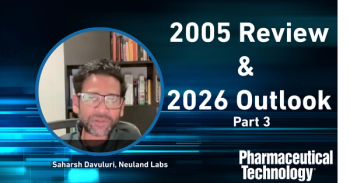
Saharsh Davuluri, Neuland Labs, urges API and peptide automation by 2026 to match modern biologics standards.

Mike Stenberg, LGM Pharma, explains how faster FDA approvals under CNPV shift bottlenecks to production, requiring onshoring and earlier supply chain risk.
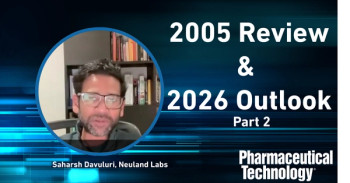
Saharsh Davuluri, Neuland Labs, discusses the move from labor to knowledge arbitrage for API manufacturers, using AI tools to empower scientists in process development.

Remco Munnik, Arcana, details pharma's shift to data-first operations, AI adoption, and robust data stewardship.
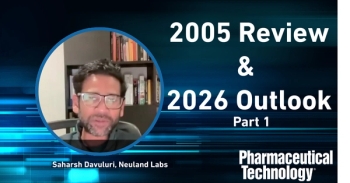
Saharsh Davuluri, Neuland Labs, covers M&A blending, geopolitical shifts, and supply chain de-risking in this look back at pharma in 2025.

Manish Garg, Hikma, reflects on how AI, resilient supply chains, and smart manufacturing are reshaping pharma today and beyond.
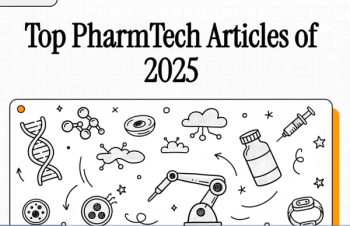
2025 pharma disruption hinged on three themes: political pricing/tariffs, tough quality scrutiny (FDA warnings), and innovation vs. changing standards (patient focus.
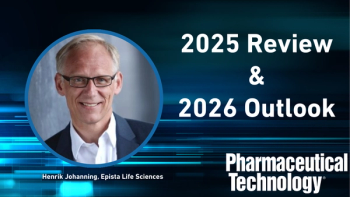
Henrik Johanning, Epista Life Sciences, takes a European perspective on what will be required of pharma developers and manufacturers in 2026.

Published: January 19th 2026 | Updated:

Published: July 23rd 2025 | Updated:

Published: July 17th 2025 | Updated:

Published: November 10th 2025 | Updated:
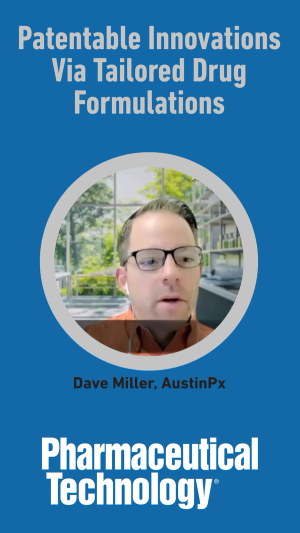
Published: August 25th 2025 | Updated:
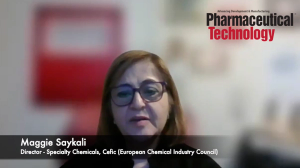
Published: October 28th 2025 | Updated: